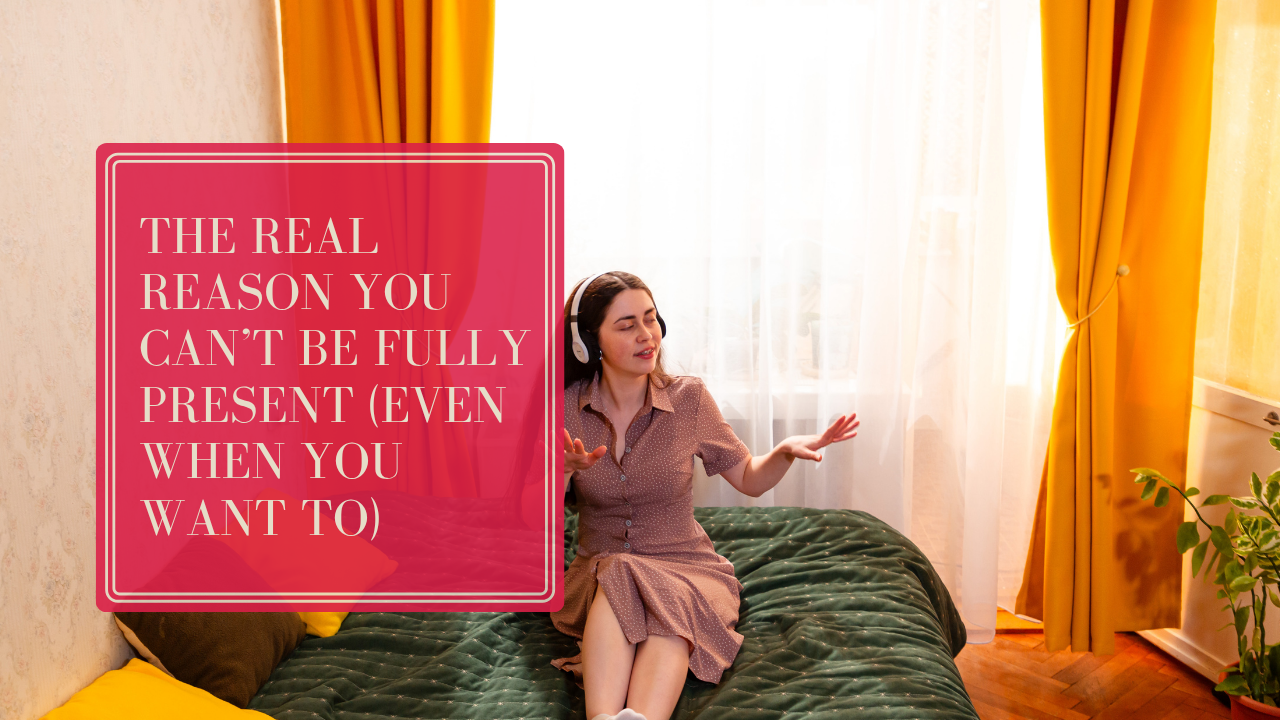The Real Reason You Can’t Be Fully Present (Even When You Want To)
There were moments I should have remembered.
Laughing at the dinner table.
Holding someone’s hand.
Sitting on the couch after a long day.
But I don’t remember them clearly not because they didn’t matter… but because I wasn’t really there.
Physically? Yes.
Emotionally? Miles away.
I was checking the box of connection. Showing up. Smiling. Asking the right questions.
But I wasn’t present.
And I didn’t know why.
I Wanted to Be There. I Just… Couldn’t Stay There.
It wasn’t about not loving the people around me.
It wasn’t about being distracted or disinterested.
It was something deeper.
Something I couldn’t explain at the time.
I had trained myself to disconnect for survival and now I didn’t know how to come back.
Living in Survival Mode Doesn’t Shut Off When You Leave Work
I spent years working in high-pressure environments where clear-headedness, detachment, and efficiency were necessary.
I was calm under pressure.
Sharp during chaos.
Unshaken in emergencies.
That’s what made me good at what I did.
But what no one told me was that the very skillset that kept me functional in crisis… would slowly unravel my ability to connect outside of it.
You learn to hold it together, constantly.
And eventually, your nervous system forgets what it’s like to let go.
Presence Requires Safety Not Just Proximity
If your body is still bracing…
If your mind is still scanning…
If your breath never reaches your belly…
You’re not present.
Even if you’re right there.
That’s the truth no one teaches us:
You can’t access emotional connection if your body doesn’t believe it’s safe.
And when you’ve lived with chronic stress for years, whether it’s trauma, burnout, overwork, or just carrying too much you start to believe that tension is normal.
You stop noticing that you’re holding your breath.
You stop hearing the tone of your own voice.
You stop feeling things as they happen and only realize later that you missed the moment.
So What Does That Look Like in Real Life?
For me, it looked like this:
Answering a loved one with “uh-huh” while still scanning my inbox
Snapping at a simple question, then apologizing five minutes later
Listening, but planning my next task in the back of my mind
Feeling overwhelmed by simple conversation because my emotional bandwidth was gone
Nodding politely, but feeling numb inside
And the worst part?
I wanted to be there. I knew I was missing it.
But I didn’t know how to stay.
You’re Not Emotionally Distant, You’re Overcapacity
Let’s get honest:
You’re probably not avoiding connection because you don’t care.
You’re probably avoiding it because you’re exhausted from everything else you’re holding.
When we’re stretched too thin, emotionally and mentally, it’s not just our work that suffers.
It’s our joy. Our presence. Our ability to soften.
It’s like you’re watching your life happen from the outside but your body never fully lands inside it.
Here’s What Helped Me Reclaim Presence Without Needing a Life Overhaul
I didn’t need a weeklong retreat.
I didn’t need to quit everything.
I just needed to interrupt the pattern.
Here’s where I started:
✅ Three deep breaths before answering anything that felt urgent but wasn’t
✅ Placing a hand on my heart or chest when I felt myself emotionally drifting
✅ Practicing “notice without fixing” and staying present when someone was emotional, without solving it
✅ Saying out loud: “I want to be here with you, I just need a second to catch up to myself”
✅ Letting silence be okay
It felt awkward at first. But slowly, the wall started to soften.
And I realized something powerful:
Presence doesn’t require perfectionit requires permission.
If You’ve Been Feeling Far Away from Your Life, You’re Not Alone
You’re not numb. You’re not ungrateful.
You’re not incapable of connection.
You’re just maxed out.
And your nervous system is doing what it was designed to do: protect you from overwhelm.
But protection and presence can’t happen at the same time.
That’s why your first step back to connection isn’t effort.
It’s safety.
Safety in your body.
Safety in slowing down.
Safety in not being needed every second.



